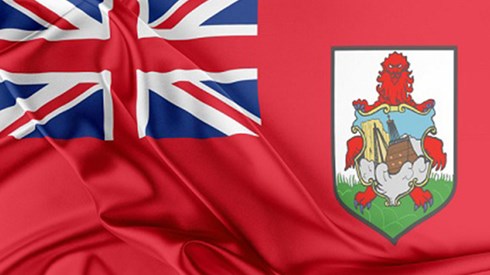Bermuda Included in EU Tax Blacklist in "Error"

March 15, 2019

The European Union has updated its list of noncooperative tax jurisdictions. The so-called blacklist document identifies 15 countries for failing to meet agreed tax good governance standards. Adopted in 2017, the first blacklist identified 17 countries considered to be tax havens operating outside of the European Union.
The European Union said the list is intended to contribute to ongoing efforts to prevent tax avoidance and promote good tax governance worldwide.
Work on the list started in mid-2016 within the Council of the European Union's working group responsible for implementing an EU code of conduct on business taxation. In November 2016, the council agreed on the process to be followed and laid down criteria for screening third country jurisdictions; namely,
- what a jurisdiction should fulfill to be considered compliant on tax transparency;
- what a jurisdiction should fulfill to be considered compliant on fair taxation; and
- that Organization for Economic Cooperation and Development anti-BEPS (tax base erosion and profit shifting) minimum standards are being implemented.
The European Union also created a "grey list" of "screened" countries that qualified as tax havens but that committed to addressing deficiencies in their tax systems. The original "grey list" contained 47 countries. The European Union will continue to monitor 34 grey list countries in 2019, while 25 countries from the original screening process have now been cleared, according to the European Union.
Over the course of last year, the European Commission assessed 92 countries based on three criteria—tax transparency, good governance, and real economic activity—as well as one indicator—the existence of a zero corporate tax rate.
Since the original list was adopted, the European Union has added or removed a number of jurisdictions to or from the blacklist. In some cases, jurisdictions that were moved to the grey list were re-blacklisted.
The current blacklist includes the following jurisdictions.
American Samoa, Aruba, Barbados, Belize, Bermuda, Dominica, Fiji, Guam, Marshall Islands, Oman, Samoa, Trinidad and Tobago, United Arab Emirates, the US Virgin Islands, and Vanuatu.
The original EU tax blacklist included the following tax jurisdictions.
American Samoa, Bahrain, Barbados, Grenada, Guam, Republic of Korea, Macao SAR, Marshall Islands, Mongolia, Namibia, Palau, Panama, Saint Lucia, Samoa, Trinidad and Tobago, Tunisia, and United Arab Emirates.
World's Largest Captive Domicile Responds
In an article appearing March 13 in the Royal Gazette, Scott Neil wrote that "A slight typographical error, and pushing up close to the edge of a deadline, are factors that led to Bermuda being put on a European Union list of noncooperative tax jurisdictions."
The article continued, "The Bermuda Government expects the island to be taken off the blacklist in May, but first it must weather two months when many of its competitors enjoy the advantages of being recognized by the EU as co-operative."
Bermuda's industry groups have pledged support for the market's long-respected record on compliance and tax transparency and are backing the Bermuda government's efforts to expedite the island's removal from the list of noncooperative jurisdictions.
"Bermuda is a world-respected platform for business that has always adhered to the gold standard," said Roland Andy Burrows, CEO of the Bermuda Business Development Agency.
He continued, "We stand firmly behind that reputation, and we commend our government's consultative approach with the EU to date. Our industry stakeholders are committed to working with the government and regulators to ensure Bermuda is recognized as fully compliant. We look forward to a positive result as soon as possible."
Kathleen Bibbings, president, Bermuda Insurance Management Association, said, "Bermuda's captive insurance sector, like other industry partners throughout our market, has a long, proven track record of cooperation and transparency, and as a jurisdiction, we'll work with the EU to meet requirements. We remain confident that Bermuda's full compliance will be confirmed shortly."
Photo above is provided courtesy of the Bermuda Business Development Agency. Pictured are Bermuda Premier David Burt, with Finance Minister Curtis Dickinson and industry representatives, at Tuesday's press conference in Hamilton.
March 15, 2019





